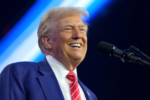Recent developments in Serbia regarding potential U.S. sanctions on the oil company “NIS Petrol,” partially owned by Russia, have sparked questions about regional implications and Kosovo-Serbia relations. Political analysts suggest that if sanctions are confirmed, the Trump administration may revisit commitments made under the Washington Agreement of September 4, 2020, which emphasized energy diversification for both Serbia and Kosovo, writes KOHA.
Serbian President Aleksandar Vučić stated that direct sanctions on Serbia’s oil industry, partly owned by Russia, could be imposed. According to Vučić, the U.S. State Department has given Serbia a 30-day deadline to explore alternative solutions, with a final decision expected by March 15.
“A decision will be announced before March 15, and we need to act swiftly to prepare by February 15,” Vučić said, hinting at destabilization attempts against Serbia.
However, Serbian political analyst Ognjen Gogić expressed skepticism, questioning whether the sanctions are genuine or a distraction from domestic protests. “We’ve only heard about sanctions from Vučić, not the U.S. government. Even U.S. Ambassador Christopher Hill declined to comment, which raises doubts,” Gogić noted.
Gogić added that if sanctions are imposed, it remains unclear how President Trump, aiming to de-escalate tensions with Russia, would approach the situation. “Trump seeks a deal with Russia to end the war in Ukraine, so escalating sanctions seems contradictory,” Gogić said.
Regarding Kosovo-Serbia relations, Gogić highlighted the Washington Agreement’s provision for energy diversification, emphasizing the potential for increased U.S. energy exports to the region.
Other regional implications include concerns from Croatia, which could be directly affected due to its energy transit routes to Serbia. “This situation could disrupt the entire supply chain, impacting not just Serbia but also neighboring European countries,” Gogić concluded.
The U.S. State Department has declined to comment on the matter, stating it does not discuss private diplomatic conversations or speculate on sanctions.







